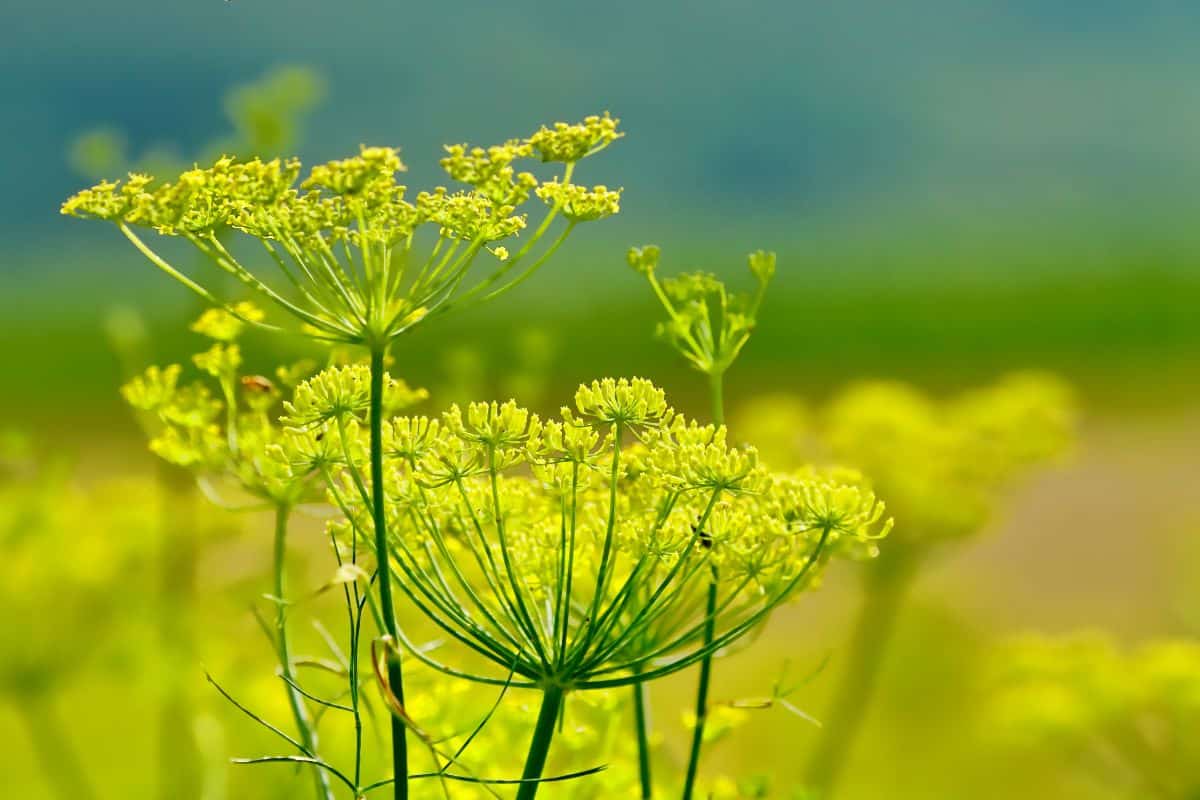Fennel stands out as one of the most problematic plants in companion gardening due to its aggressive chemical warfare against neighboring vegetables. This aromatic herb produces allelopathic compounds that actively suppress the growth of nearby plants, making it a challenging addition to mixed garden beds. Understanding why fennel creates issues helps gardeners make informed decisions about plant placement and garden design.
Most experienced gardeners discover fennel’s incompatibility through disappointing harvests and stunted vegetable growth. The plant’s beautiful feathery foliage and distinctive anise scent mask its territorial nature, which becomes apparent only when surrounding crops begin to struggle. This deceptive appearance often leads novice gardeners to plant fennel alongside their favorite vegetables, resulting in reduced yields and weakened plants.
Allelopathic properties create garden warfare
Fennel releases powerful allelopathic chemicals through its roots and decomposing plant matter, creating an invisible barrier that prevents other plants from thriving. These natural herbicides, primarily composed of anethole and fenchone compounds, actively inhibit seed germination and root development in nearby vegetation. The concentration of these chemicals increases as the plant matures, making established fennel particularly problematic for companion planting.
The allelopathic effects extend beyond simple competition for nutrients and water, representing a sophisticated chemical defense mechanism. Fennel’s root system continuously secretes these compounds into the surrounding soil, creating zones of reduced plant growth that can persist even after the fennel is removed. This chemical persistence explains why many gardeners notice continued problems in areas where fennel previously grew.
Research demonstrates that fennel’s allelopathic impact affects different plant families with varying intensity. Solanaceae family members, including tomatoes, peppers, and eggplants, show particularly strong sensitivity to fennel’s chemical compounds. Similarly, many herbs and aromatic plants experience significant growth reduction when planted near fennel, despite sharing similar growing requirements.
The timing of fennel’s chemical release correlates with its growth cycle, with peak allelopathic activity occurring during active growth periods. Spring and early summer represent the most problematic times for companion plants, as fennel channels energy into both vegetative growth and chemical production. Understanding this seasonal pattern helps gardeners time their planting decisions more effectively.
Specific crops suffer from fennel proximity
Tomato plants represent perhaps the most documented victims of fennel’s allelopathic effects, with studies showing significant yield reductions when grown within six feet of fennel. The chemical compounds interfere with tomato root development and nutrient uptake, resulting in smaller fruits and reduced overall plant vigor. Many gardeners planning tomato growing conditions overlook this critical compatibility issue.
Bean and pea plants also demonstrate marked sensitivity to fennel’s presence, with germination rates dropping significantly in fennel-influenced soil. The leguminous crops rely heavily on beneficial root bacteria for nitrogen fixation, and fennel’s allelopathic compounds appear to disrupt these crucial microbial relationships. This interference affects not only current crop performance but also the soil’s long-term fertility benefits from legume cultivation.
Carrot family vegetables, despite their botanical relationship to fennel, often struggle in its presence due to competition for similar nutrients and growing space. Root vegetables like carrots, parsnips, and turnips show reduced size and quality when grown near fennel, suggesting that family relationships don’t guarantee compatibility in companion planting scenarios.
Leafy greens including lettuce, spinach, and Asian brassicas exhibit stunted growth and reduced leaf quality near fennel plants. The allelopathic effects seem to interfere with chlorophyll production and cellular development, resulting in pale, undersized leaves with compromised nutritional content. Even hardy crops like basil cultivation can suffer when fennel dominates the garden space.
Spatial requirements and garden planning
Effective fennel management requires understanding its spatial impact zones and planning garden layouts accordingly. The allelopathic effects typically extend three to six feet from mature fennel plants, though soil conditions and drainage can influence this range. Heavy clay soils tend to retain allelopathic compounds longer, while well-draining sandy soils may dilute these chemicals more quickly through natural leaching processes.
Professional garden designers often recommend dedicating separate growing areas exclusively to fennel, treating it as an isolated specialty crop rather than integrating it into mixed plantings. This approach allows gardeners to enjoy fennel’s culinary benefits without compromising other valuable crops. Container growing represents another effective strategy for fennel isolation, preventing root-zone chemical contamination of surrounding soil.
Crop rotation planning becomes crucial in gardens where fennel has been grown, as residual allelopathic compounds can affect subsequent plantings. Most experts recommend waiting at least one full growing season before planting sensitive crops in former fennel locations. Adding organic matter and encouraging soil microbial activity can help break down residual allelopathic compounds more quickly.
Some gardeners successfully incorporate fennel into perimeter plantings or natural pest control strategies, positioning it where its allelopathic properties might actually benefit garden health. When planning comprehensive garden designs, consider whether certain plants should be excluded from vegetable growing areas entirely.
Alternative growing strategies for fennel enthusiasts
Gardeners committed to growing fennel can employ several strategies to minimize its negative impact on companion plants. Barrier plantings using less sensitive species can create buffer zones between fennel and vulnerable crops. Grasses and some ornamental plants show greater tolerance to allelopathic compounds, making them suitable intermediate plantings in garden transitions.
Raised bed systems offer excellent solutions for fennel cultivation, providing physical and chemical isolation from main garden areas. Dedicated fennel beds can be positioned strategically within the landscape design, perhaps integrated with herb gardens or ornamental areas where allelopathic effects pose fewer problems. This approach works particularly well in office garden settings where space is limited but plant diversity is desired.
Timing fennel harvest strategically can reduce its allelopathic impact on neighboring plants. Early harvest of fennel leaves and bulbs prevents the plant from reaching peak chemical production levels, though this requires sacrificing some crop maturity for garden harmony. Some gardeners adopt succession planting approaches, growing fennel in temporary locations before transplanting to permanent isolated areas.
Consider exploring companion alternatives that provide similar flavors without the allelopathic complications. Dill offers comparable anise notes in culinary applications while showing much better companion plant compatibility. When planning garden amendments, remember that natural soil supplements and organic matter applications can help mitigate some allelopathic effects. Additionally, implementing ground cover solutions in problematic areas can help restore soil health and prevent erosion while fennel’s chemical effects diminish naturally over time.

